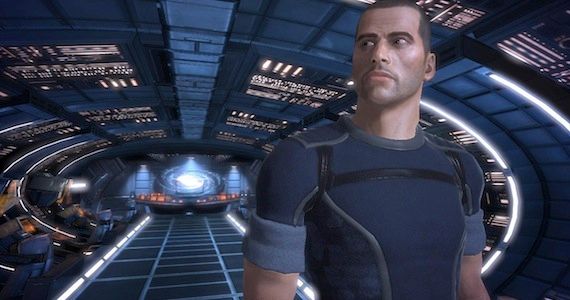Though we've heard it time and time again, day one DLC still is considered a poor move by developers. Despite claims that the post-release content is worked on well after the main game has been completed, there are still questions of why it wasn't packaged in at the retail level.
BioWare, or more specifically Director of Online Development for BioWare Fernando Melo, hopes to answer some of those questions, and also explain the importance of microtransactions over the much-maligned online pass. He took the stage during a Gamescom panel to discuss the issue.
Melo's defense of the day one DLC isn't something gamers haven't heard before, but his reasoning behind the timing of such a release is interesting to consider. In Melo and BioWare's mind, a day one DLC release like From Ashes, gives the player some additional content to consume at their leisure. Some gamers like to rush through the game and then see what's available on the marketplace, while others prefer to pick each piece of DLC up as they become available.
Day one DLC, like it or not, perfectly accommodates both of those gamer sensibilities, and helps prolong the shelf life of any game whether it be Dragon Age 2 or Mass Effect 3. Melo also explained that DLC is usually worked on way before release which to us sounds like something that shouldn't be "extra," but he shies away from explaining the mindset behind it.
Another important element that BioWare recently discovered with Mass Effect 3's multiplayer is the importance of microtransactions. Microtransactions, as opposed to a predetermined amount of DLC, has no "max value," and is therefore more important than something like an online pass. Yes, some players choose never to partake, but those that do are not bound by any type of obligation.
Take, for example, the current DLC formula of releasing about 4 or 5 pieces of additional content at around $10 - $15. If a player were to purchase every piece of DLC they would only be putting, at maximum, $60 towards continued enjoyment of that game. Microtransactions, on the other hand, might be smaller purchases, but they carry no inherent limit.
“A key tenet of microstransactions is it allows players to spend what they want, when they want to. This is a really powerful force and concept. They’re not capped, unlike one time DLC purchases. If you have five DLCs, even for the most ardent fan, they will only ever be able to give you 50 dollars, let’s say. With microtransations and consumables and things of that nature, potentially you may get less, but you may have more players able to do that. There’s also a lower barrier to spend, compared to most fixed-priced items.”
Melo made it apparent that his thoughts on microtransactions and the future of the online pass are not necessarily representative of BioWare's perspective on the matter, but clearly he'd like to see things change. BioWare is betting heavily that microtransactions will keep their downward-trending MMO The Old Republic afloat, but let's just hope this doesn't mean a microtransaction-filled multiplayer is in the future for all BioWare titles.
How do you feel about day one DLC? Do you tend to avoid it or is it your first purchase? Would you like to see a marketplace where microtransactions replace the online pass?
Source: IGN

